FORT HOOD, Texas -- Watching a friend die in combat changed Sgt. Allen Chase's life.
"My gunner, Eric Caldwell, he was killed right in front of me. We were stopped on the road, and a sniper shot him," Chase recalled. "I looked up. I knew he was dead, but I went ahead and pulled him down to me. I just remember kissing him on the forehead and saying, 'I love you brother. Go with God.'"
"He and I did everything together. We went to the gym together. We went to chow together. He watched my back when I was dismounted. I was his first priority," Chase said, fighting back his emotions.
Chase remained in Iraq with the 2nd Bn., 8th Cav. Reg., 1st Bde., 1st Cav. Div. for another year. As a combat medic, he said he saw numerous fatalities, but none hit him as hard as Caldwell's.
While deployed, Chase said he found a way to work through his grief.
"For that time, me being out on missions was easier to deal with because I was able to fire back," he said. "I was able to get out aggression and retaliate. For right then it was good, but it became a crutch. When I came home, I brought that home with me."
"My youngest son, Ammon, was doing some prank. He was just having fun, and all of a sudden I just snapped and started yelling at him, and I don't do that. So that's when I realized that I did have a problem, and I did have an issue," he said.
He also learned that he couldn't be in large crowds without going into a panic mode. He hasn't been to the mall in years, and he admitted he was uncomfortable in his own home when 19 kids came over for a birthday party.
"He was completely closed off," said Karyl, his wife of 16 years.
Chase, a father of six, knew he needed help, but his goal is to become a commissioned officer and a physician's assistant, and he feared asking for help would end that dream.
One of his friends told him about Carl R. Darnall Army Medical Center's Warrior Combat Stress Reset Program, and he realized that might be the answer. He asked fellow noncommissioned officers and the head of the Interservice Physician Assistant Program if participating in the reset program would hurt his career. He was pleasantly surprised by their answer.
"They said it's not a problem," he said. "They actually like to see somebody who can step forward and say, 'Hey, I have this issue. Help me fix it.' Then, they realize that that person can address the same issues with other Soldiers."
The reset program is designed to reduce core symptoms of combat stress and Post Traumatic Stress Disorder. It includes a three-week intensive course followed by eight weeks of group therapy.
Chase self-referred himself to the program and participated in the November class. He said on day one, the Soldiers were distant.
"Nobody trusts anybody at first. It's just a given. Everybody is insecure saying, 'Maybe my problems aren't as bad as theirs, or maybe they're just faking it trying to get out of work,'" he said. "As you progress, you actually build a bond between the guys. You learn their incidents. You learn that they had to go through that, too, in their own way."
Creating that bond is one of the priorities of the program, according to the Program Director and Officer in Charge, Dr. Jerry Wesch.
"We consider people who have been through the reset program or who have worked here to be a part of our family forever," he said. "We're always here for our Soldiers, and they're always there for each other. People have said that the bonds formed in their reset cohort were as strong as anything they've ever felt in the military."
"We're brothers in more ways than just going to combat," said Chase. "We're brothers in that we have these problems. We're doing something to fix it, and we're saying, 'Help me, and let me help you.'"
Chase said the Soldiers in his group learned how to trust each other and help each other through both individual and group therapy.
"I was able to actually see a change within the first week, and then it just got better the second and third week," he said. "I was able to deal with the traumatic memories that I had. I was able to deal with them a lot easier. I could actually bring them up and not break down or not lock up."
Karyl immediately noticed the positive change in her husband, too.
"I could tell the difference right away when he first came home," she said. "You kind of find yourself and you breathe again.
"I think they are a really wonderful group of people because they are very sincere about how they feel about the Soldiers, and they are very compassionate toward them and toward their families," she said, referring to the staff. "It's very personal, and I think that really helps them because I think they need to be able to feel that comfort and that welcome feeling."
Both Chase and his wife acknowledge that despite the success of the program, he still does have challenging days, but he said the reset program taught him how to react to and recover from his mood swings.
"They give you the tools to further progress, and they let you know how to do it," he said.
Those tools are currently helping 357 Soldiers who have graduated from the reset program at Fort Hood.
To pay tribute to their strength to heal, Wesch hosted an alumni reunion Dec. 16. People crowded into the building to watch the December class graduate and share stories of recovery. Despite his past fears of crowds, Chase was at ease with his kids, Colter, Brent, Alyssa, Ammon, Anika and Kathryn, by his side.
"A lot of people think, 'If I need to go get help I'm weak.' If they're hiding their weaknesses, that's the true weakness," Chase said. "If I can actually go out and say, 'Hey, I need to fix this. I recognize this problem in me. I recognize that I can't do it by myself. I need help.' That's the true strength."
Related Links:
STAND-TO!: Comprehensive Soldier Fitness
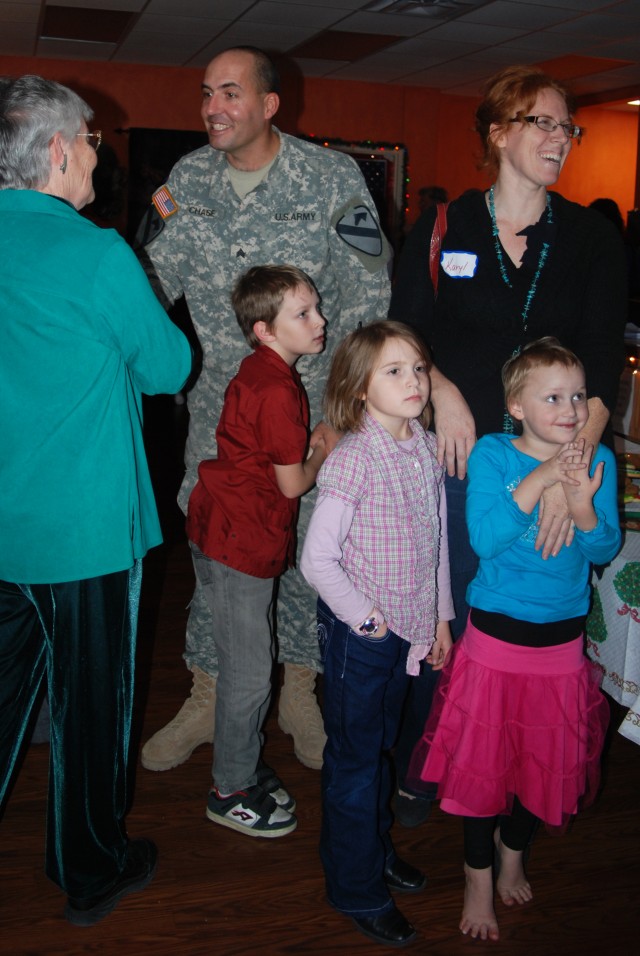
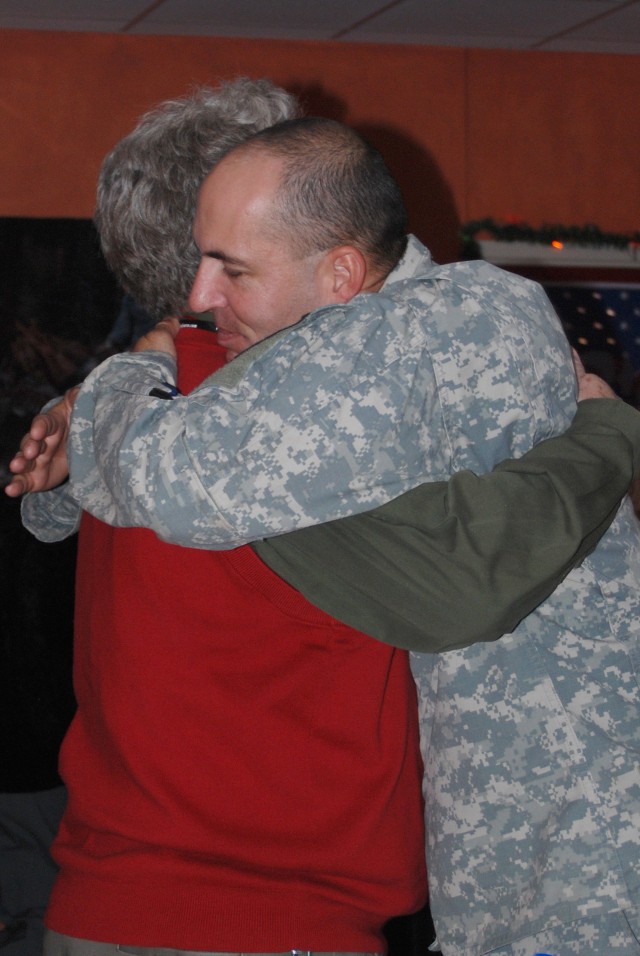
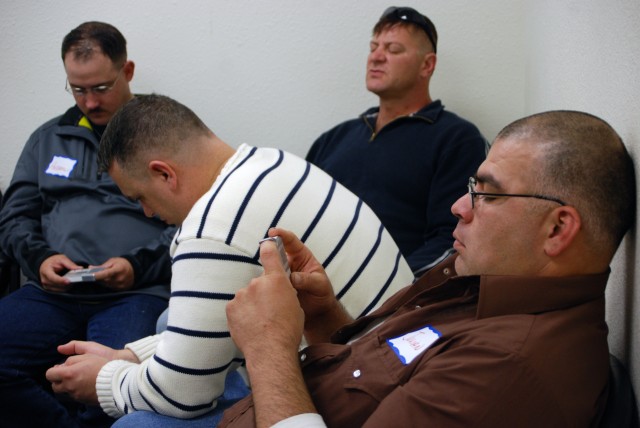
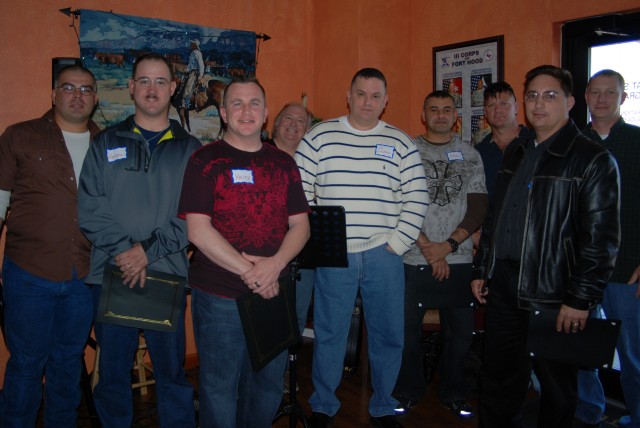
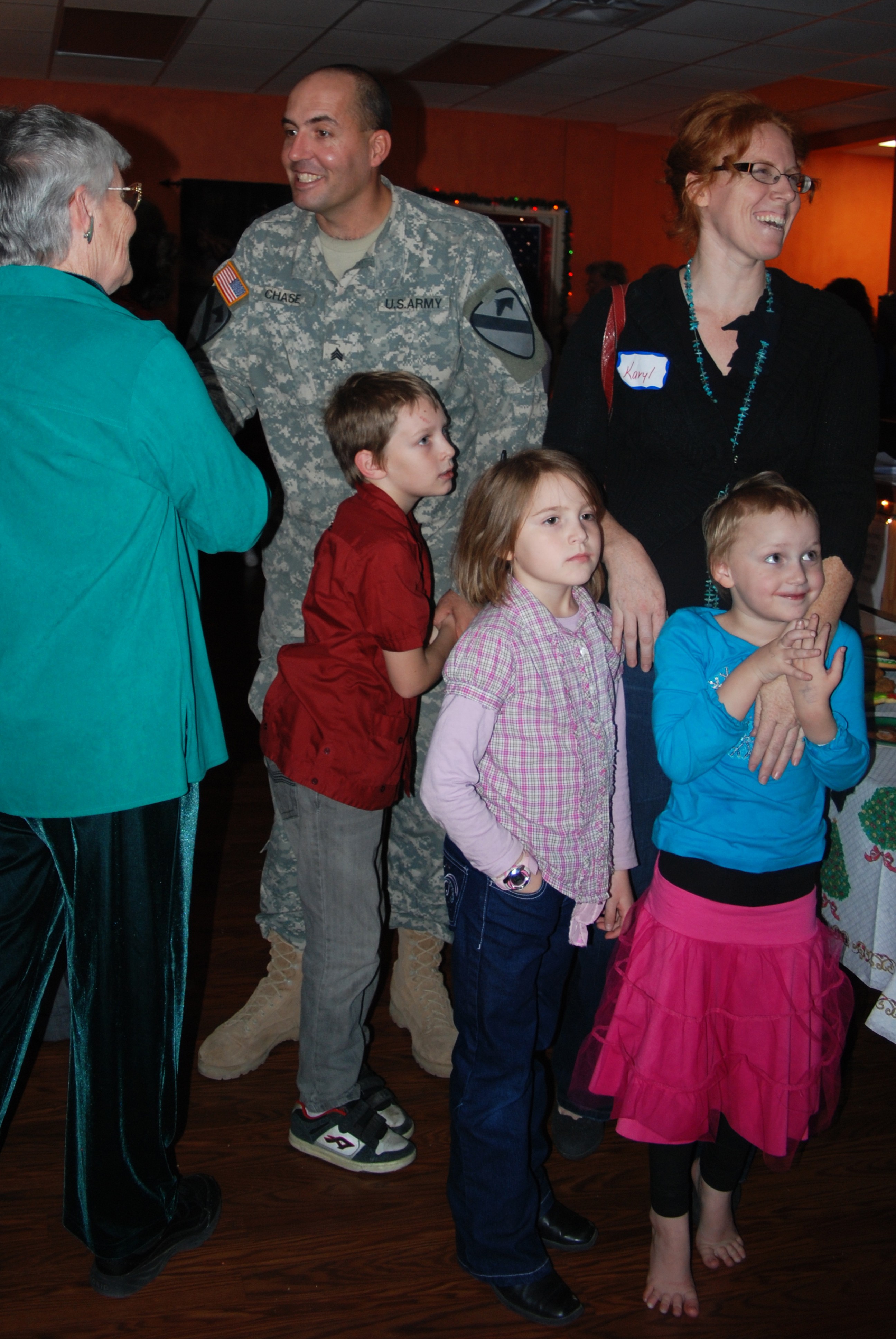
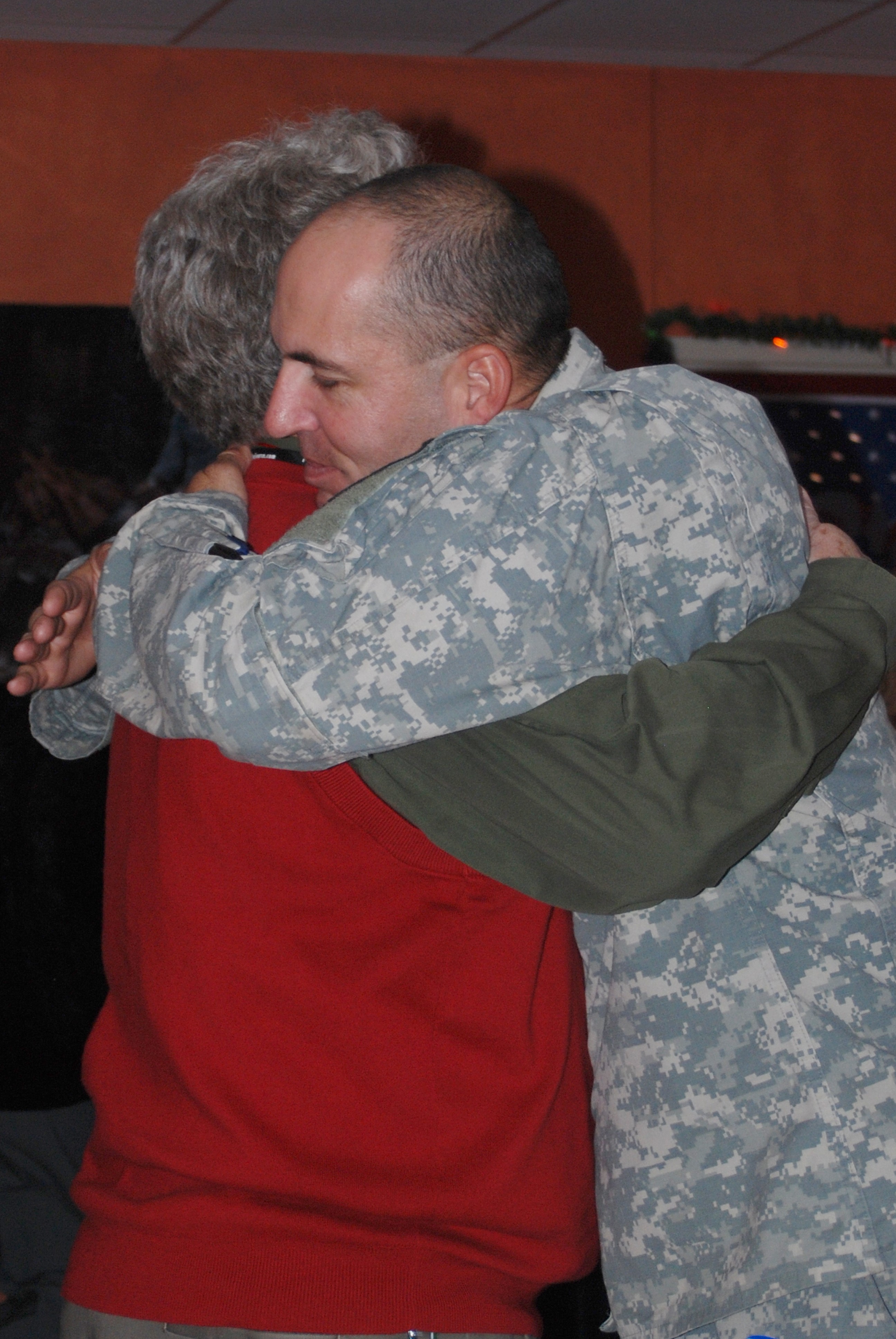
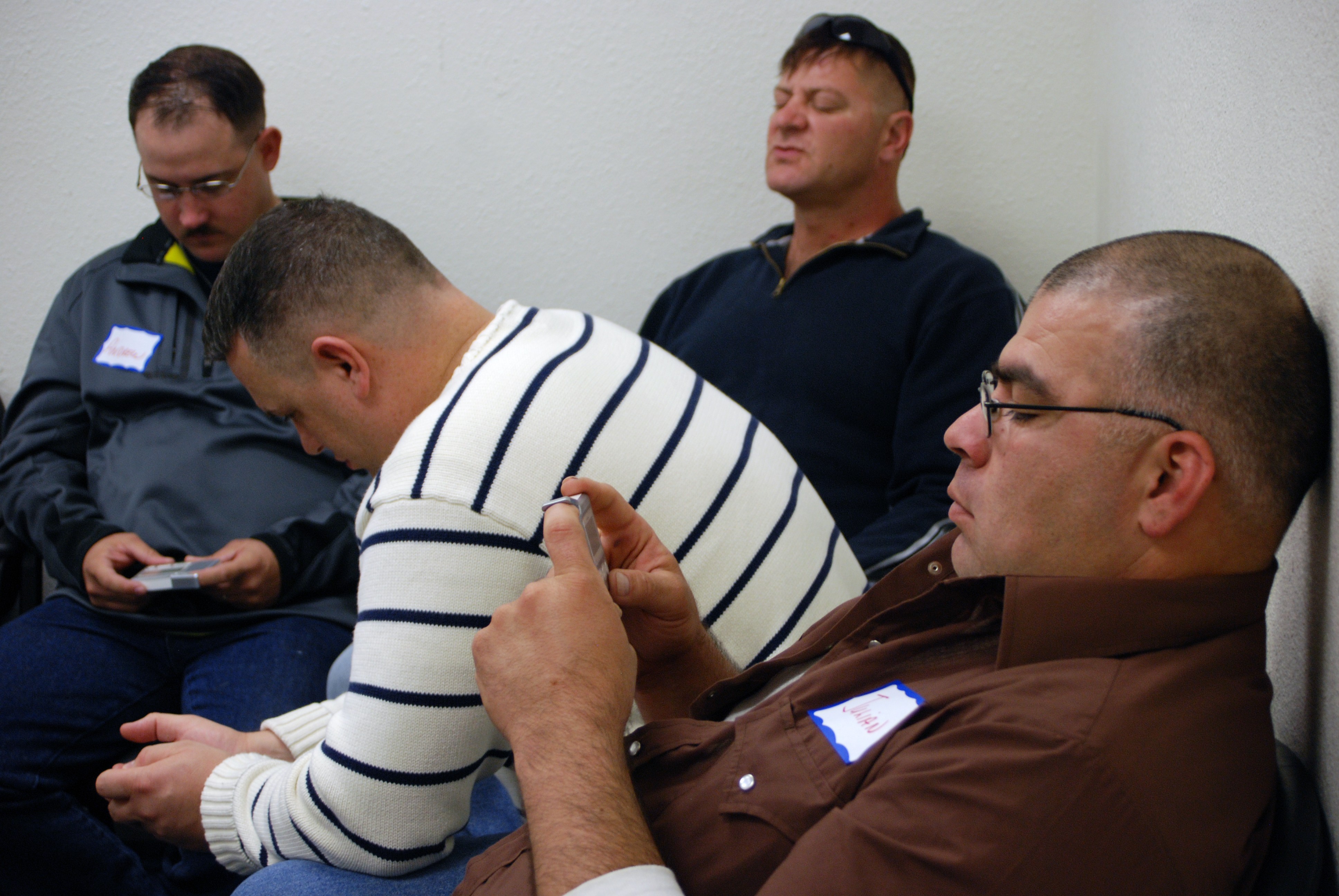
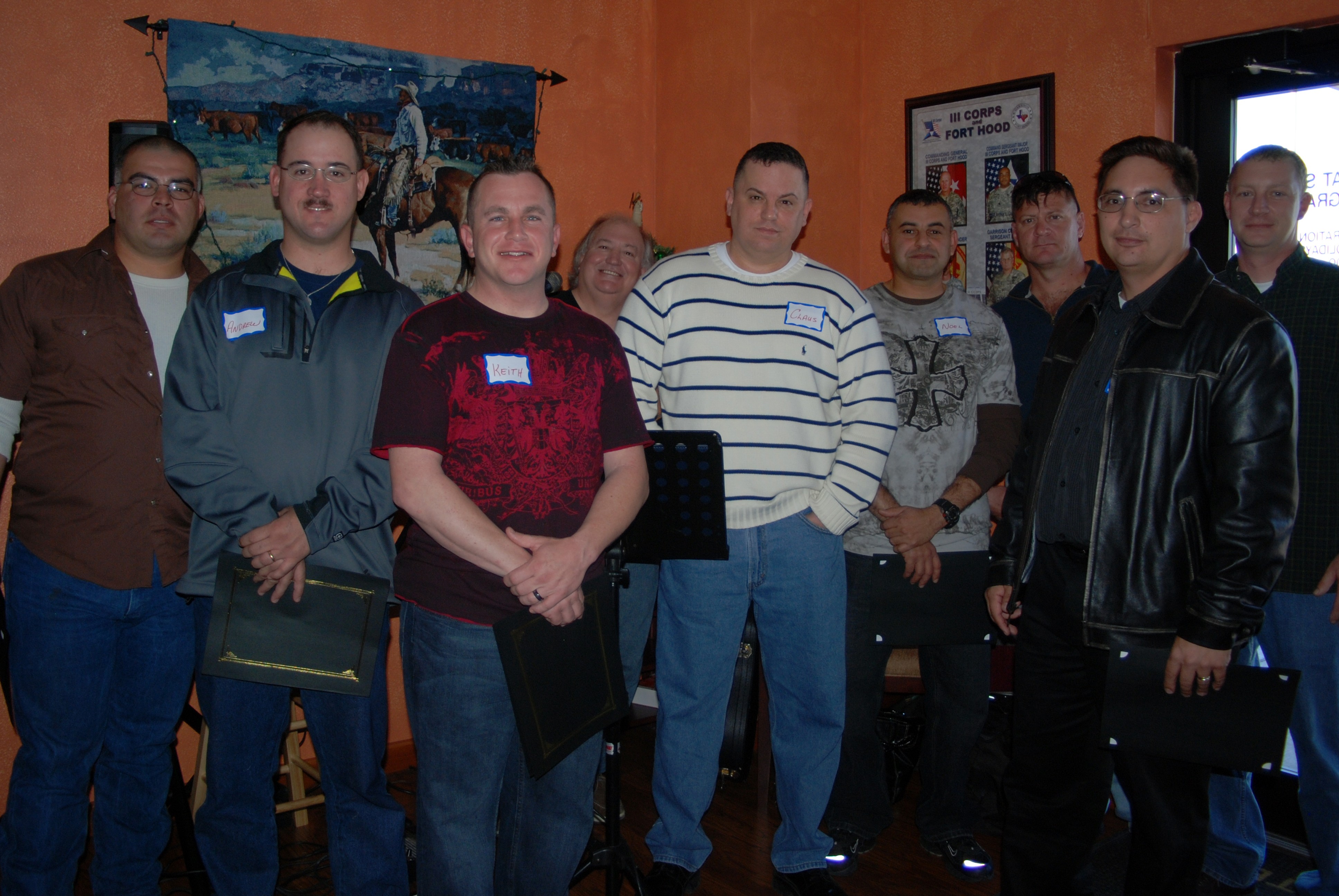
Social Sharing